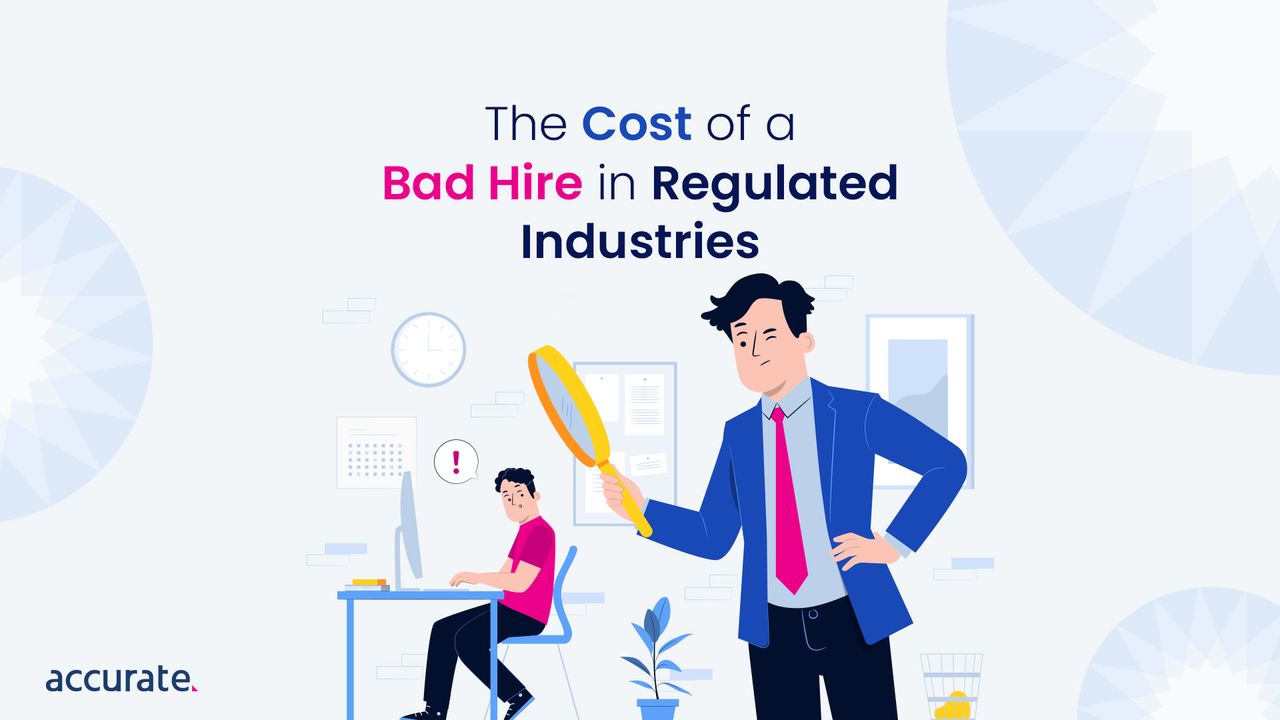In Australia, a “spent conviction” is a criminal conviction that is removed from a person’s record after a specified period of time. The time period varies depending on the severity of the crime, but it generally ranges from three to ten years.
After spent convictions in Australia are completed, the person is not required to disclose them to employers or other organisations. The purpose of the spent convictions scheme is to give people who have been convicted of minor crimes a second chance.
It is based on the principle that people should not be punished for the rest of their lives for mistakes that they have made in the past. However, there are certain criteria that need to be met in order for a conviction to become “spent”. This criterion differs slightly between state and federal-level legislation.
This article will outline the key details of each state and federal Australian spent conviction scheme, and what this means for both a candidate and an employer.
What is a Spent Conviction?

As anyone with a criminal record knows, the consequences of their conviction can follow them long after they have served their sentence. For many people, this can make it difficult to find employment or housing and can lead to social isolation and exclusion.
In recognition of this, legislation exists in all Australian states and territories, as well as the Commonwealth, that limits the disclosure of certain older offences once a period of time passes. During this period of time, the person will not have committed any further offences.
This is known as “spent convictions legislation,” and it provides an important opportunity for people to move on from their past and rebuild their lives.
While the legislation does not erase a person’s criminal record, it does ensure that their offence will not be disclosed in most circumstances after a certain period of time. In most cases where a person is tried as an adult, the waiting period is ten years. In all other cases, the period is reduced to five years (or three years in New South Wales).
Should the offender recommit a crime during this period, it will simply restart. Only after the relevant waiting period has passed will the offence be considered spent. A spent conviction can provide a much-needed second chance for people who have made mistakes in their past and help them to contribute positively to society.
Do Spent Convictions Show Up on a Police Check?
A person with a spent conviction generally does not have to disclose the conviction, but there are some exceptions. A statutory or prescribed exclusion might apply if the person is applying for a job that involves working with children or other vulnerable people, or if the offence is a serious one.
The National Police Check (NPC) will take into account any spent convictions when deciding whether or not to disclose them. In general, the NPC will only disclose convictions that are considered relevant to the job in question.
However, even if a conviction is not disclosed on an NPC, it may still be taken into account by an employer during the hiring process, especially for the following purposes:
- The candidate has applied for a job in the aged care, disability, or children’s sector.
- The applicant has applied for a position in a hospital or at a fire prevention centre (firefighting).
- The candidate is looking for work in an immigration detention facility.
- The candidate is applying for driver accreditation for Uber, bus, or other taxi driving services.
Other circumstances where a spent conviction may be disclosed include:
- applications for firearms permits;
- immigration;
- government security clearances; and
- applications for superannuation trusteeships.
It is worth noting, however, that this is not an exhaustive list and, in most cases, each state or territory has its own exclusions based on the specific crime committed and the length of the sentence given for the crime.
For example, in some states or territories, if you were sentenced to 12 months in jail for a crime, that could still become a spent conviction after ten years. However, in other states, any sentence above 6 months is seen as a serious conviction and will show up on police checks even after the 10-year waiting period.
For more information about spent convictions in your state or territory, see the discussion below.
How to Apply for a Spent Conviction
In most cases, an offence will be spent automatically if and when you qualify for the scheme. There is no need to submit an application. Again, however, this will depend on the state or territory in which you reside.
For example, in South Australia, you need to complete the Magistrates’ Court Criminal Form 110 to apply to have a conviction spent. And in Western Australia, you can submit a request to the police force to spend any eligible convictions when applying for a National Police Certificate.

The Commonwealth Spent Conviction Scheme
The Commonwealth Spent Convictions Scheme applies automatically to convictions for federal offences that are punishable by imprisonment for less than 30 months and older than ten years (or five years for child offenders).
The federal legislation provides a guide for all other spent conviction schemes. However, a range of other state and territory spent conviction schemes also exist, with qualifying periods and disclosure rules that vary across jurisdictions.
State and Territory Spent Convictions Legislation
| State or Territory | Legislation | Criteria |
| New South Wales | The Criminal Records Act of 1991 | The crime-free period is 10 years for adults and 3 years for juvenile offenders. If an offence doesn’t lead to a conviction, it’s spent immediately. Offences, where the prison sentence is longer than 6 months, can’t be spent. Sex offences are excluded from the list of possible spent convictions. |
| The Australian Capital Territory | Spent Convictions Act of 2000 The Crimes (Sentencing) Act of 2005 | The crime-free period is 10 years for adults and 5 years for juvenile offenders. Offences, where the prison sentence is longer than 6 months, can’t be spent. Sexual offences are excluded from the list of possible spent convictions. |
| Queensland | The Criminal Law (Rehabilitation of Offenders) Act of 1986 | Adults must complete a crime-free period of 10 years, and children and young people must complete a waiting period of 5 years. Offences, where the prison sentence is longer than 30 months, can’t be spent. Offences can be expunged from an individual’s criminal record if they were quashed or a pardon was granted. Once an offence is spent, you can lawfully deny ever being convicted of the crime. Non-disclosure is exempt if the minister grants a permit authorising disclosure and if the crime falls under the list of exemptions. |
| Victoria | The Spent Convictions Act 2021 | An offence that was not a serious violent offence or a sexual in nature. Any term of imprisonment or detention in a youth justice facility, imposed by the court was 30 months or less. Adults must complete a waiting period of 10 years, and children and young people must complete a waiting period of 5 years. |
| Western Australia | Spent Convictions Act of 1988 Sentencing Act of 1995 | Lesser offences are considered spent after 10 years from conviction, including any term of imprisonment that is imposed. A lesser conviction includes those with less than 12 months of imprisonment or less than a $15,000 fine. Any serious offences can only be spent after an application to the District Court. A court may also make a spent conviction order during sentencing. You will have to apply to the WA Police to have the offence as spent – it’s not automatically spent. |
| South Australia | The Spent Convictions Act 2009 | The waiting period is 10 years for adults and 5 years for juvenile offenders. If an offence doesn’t lead to a conviction, it’s spent immediately. If an offence is dismissed or pardoned, and if the charge becomes invalid, it’s spent immediately. National Police Checks in SA may disclose spent convictions of people working in vulnerable, aged, children’s, and other sensitive roles. An offence or also be disclosed if the convicted person consents. |
| Northern Territory | The Criminal Records (Spent Convictions) Act of 1992 | Adults must complete a waiting period of 10 years, and children and young people must complete a crime-free period of 5 years. The offence was not a serious violent offence or a sexual offence. Any term of imprisonment or detention in a youth justice facility, imposed by the court was 6 months or less. |
| Tasmania | Annulled Convictions Act of 2003 | The crime-free period is 10 years for adults and 5 years for juvenile offenders. If an offence doesn’t lead to a conviction, it’s spent immediately. Offences, where the prison sentence is longer than 6 months, can’t be spent. A sexual offence is excluded from the list of possible spent convictions. |
Key Takeaways
In Australia, spent convictions are criminal records that are no longer able to be used against a person. This means that they will not appear on a criminal history check and cannot be used to deny a person employment or housing.
Spent convictions can only be applied to certain types of offences, and only after a set amount of time has passed.
There are also some exceptions for serious offences, such as sexual offences and violent crimes. If you have any questions about how spent convictions impact you as an employer, get in touch with our team today.
Here at VerifyNow Pty Ltd trading as Accurate Background in Australia, we are accredited with the ACIC and an approved provider with the Australian Federal Police. We assist in the process of obtaining Australian police checks on potential employees as part of a broader employment screening process.



